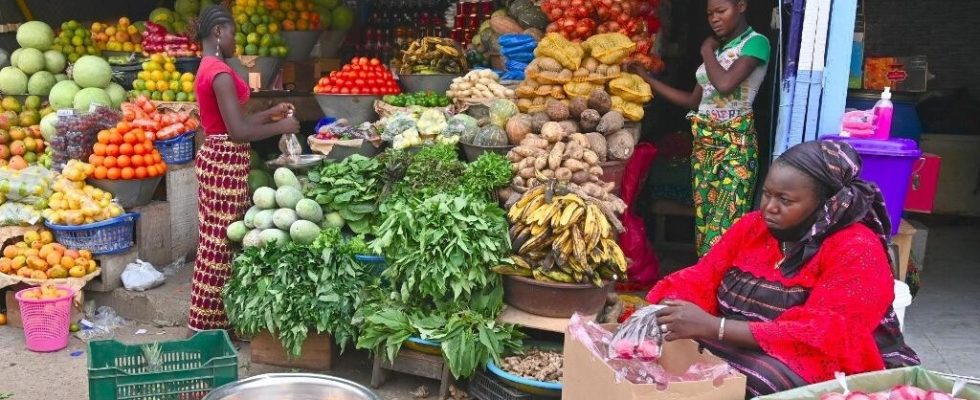Since January, the Ivorian Ministry of Commerce has banned the export of food products for a period of six months. Because of the dry season, the authorities want to avoid shortages in the markets and guarantee affordable prices for consumers. Report at the Siporex 2 market, in the Municipality of Yopougon.
1 min
With our correspondent in Abidjan, Bineta Diagne
The government lifted the ban for plantain, cassava and yam. But the measure is maintained for the rest of food products, and thus still concerns vegetables.
Solange sells local eggplants. But the period seems unfavorable to her: she buys them at a high price and makes little profit, she says. “ It’s not easy, eggplant is expensive. Before the bag was 5000 [francs CFA], today it is at 16,000! »
However, the stalls are well stocked. You can find everything: Korhogo red pepper, okra and many vegetables from the interior of the country. According to Mabaty Dosso, the president of the Siporex 2 market, every day, this site can receive up to two tonnes of food products. For her, the ban on exporting these products is beneficial.
“ The measure made it possible to supply the markets in sufficient quantity and quality. We must not let everything go out because not everything is produced abundantly in Côte d’Ivoire. Otherwise, we will be in shortage. »
This measure aims to protect local markets, assures Bernard Adou, director of the Food Products Marketing Assistance Office: “ We have noted that the prices of food products have fallen by more than 40%. »
At the same time, teams from the Ministry of Commerce are identifying entrepreneurs engaged in the export of food products, in order to better understand the scale of demand in the sub-region.
